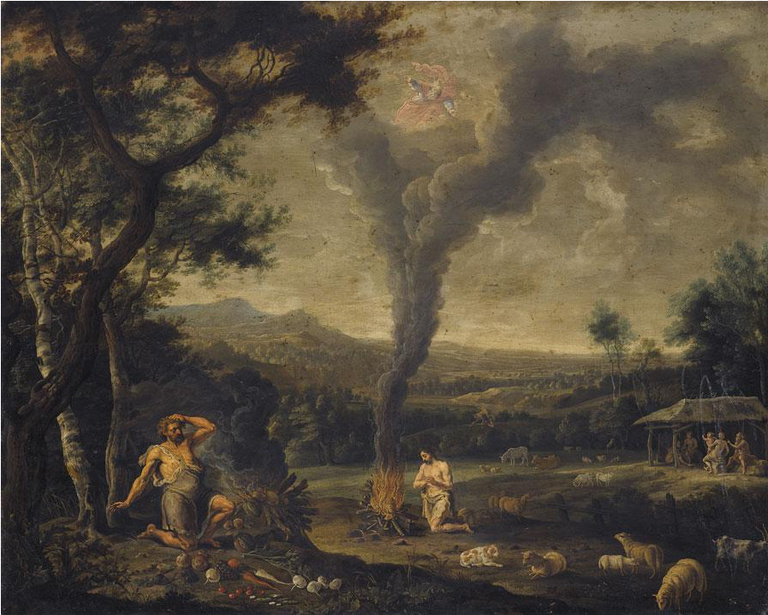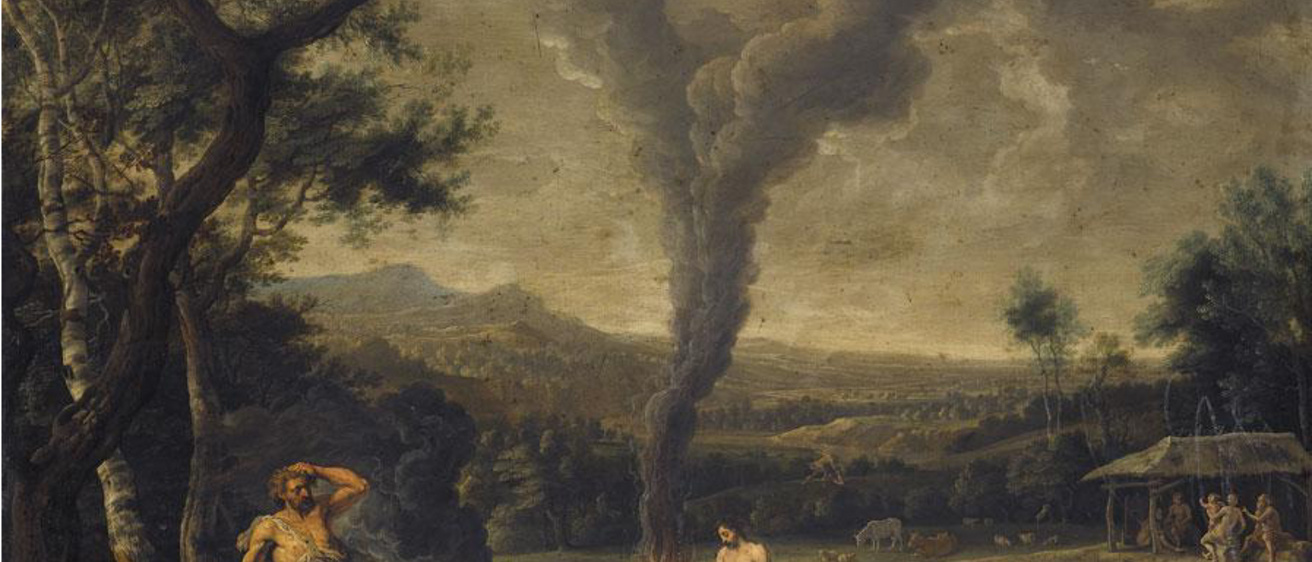
Genesis 4:3–5 reads as follows:
In the course of time Cain brought to the LORD an offering of the fruit of the ground, and Abel for his part brought of the firstlings of his flock, their fat portions. And the LORD had regard for Abel and his offering, but for Cain and his offering he had no regard. So Cain was very angry, and his countenance fell.
For as long as people have studied the Bible, the question of why God preferred Abel's sacrifice to Cain's has been debated, with scholars never arriving at a definitive consensus. This is because the Bible never tells us specifically why God favored Abel's offering over Cain's.
Nevertheless, a rivalry between brothers becomes a recurring theme that connects the narratives of the Torah to king David and beyond, providing an important aspect of Israel’s biblical identity. In fact, sibling rivalries are so central to the biblical narrative that the theme first appears with the very first brothers—Cain and Abel.
The trouble begins when each brings a sacrifice to the Lord. Cain, the firstborn and a farmer, brings what he has—the fruits of his labors—while Abel, the second born and a shepherd, brings what he has: the produce of his pasture.
The text says that the Lord “has regard” only for Abel’s sacrifice, which leads to Cain’s, jealousy, anger, and eventual murder of his brother, Abel, followed shortly by his expulsion (Genesis 4:1–6).
But why does God favor Abel's sacrifice over Cain's? The Genesis narrative is focused on Cain’s reaction after the murder and pays no attention to the motives behind God’s preferences.
One of the more popular explanations has been that God preferred Abel’s offering because it was the firstborn from his flock, while Cain's offering was a mere "garden variety" of assorted produce. And while the concept of the sacrifice of the firstborn is a recurring theme throughout the Bible, including the priestly laws of sacrifice (Exodus 22:29; 34:19–20), Abraham's near sacrifice of Isaac (Genesis 22), Yiftaḥ's daughter (Judges 11:30–40), and of course the symbolic sacrifice of Jesus (John 3:16), the text provides no negative assessments of Cain’s offering beyond stating that God would not "regard" it (literally "gaze at it" from the Hebrew word שׁעה, shaʿah, meaning "to look over, check through, validate"). Furthermore, offering the first fruits from the field would later become a commandment (cf. Exodus 23:19; 34:26; Deuteronomy 18:4), so it is difficult to argue that God would be displeased with the very thing that he would later command of all Israelites.
A more likely, though less ethically satisfying solution is found by looking at what each of the favored brothers throughout Israel’s history have in common. Most of them are a second or younger child and were often shepherds: Abel, Isaac, Jacob, Joseph, Judah, David.
The Bible portrays these characters as the “little guys” in their respective storylines. Being shepherds marked them as nomads dwelling on the edges of the civilizations that belonged to the sedentary farmers, who relied more on their own efforts, and worked together to build collectives, accumulate wealth, and build cities, and upon whom the pastoral nomads would always be dependent.
As the representative of pastoral nomads, many scholars argue that God is shown as favoring Abel's sacrifice because the Bible's authors wanted to promote the nomadic, pastoral lifestyle that represented Israel over the agricultural lifestyle and urban development represented by Cain's offering.
So while we're not sure why God regarded Abel's offering over his brother Cain's, it is consistent with the favoring of the younger brother above the firstborn throughout the biblical text, and with the promotion of shepherds and nomads over those dwelling in cities.
(originally published February 10, 2021)
